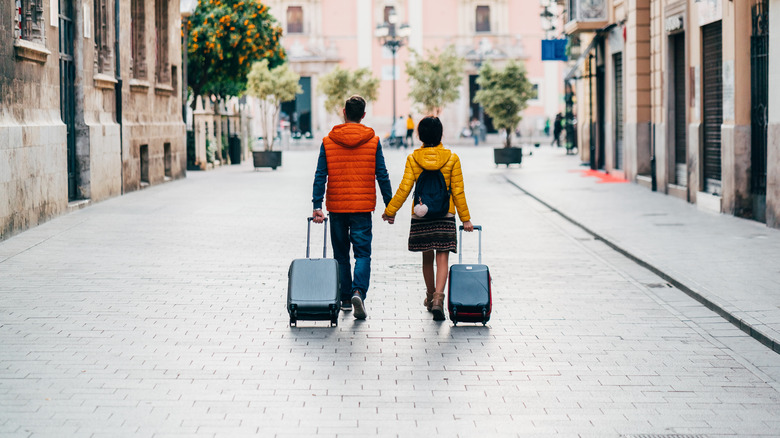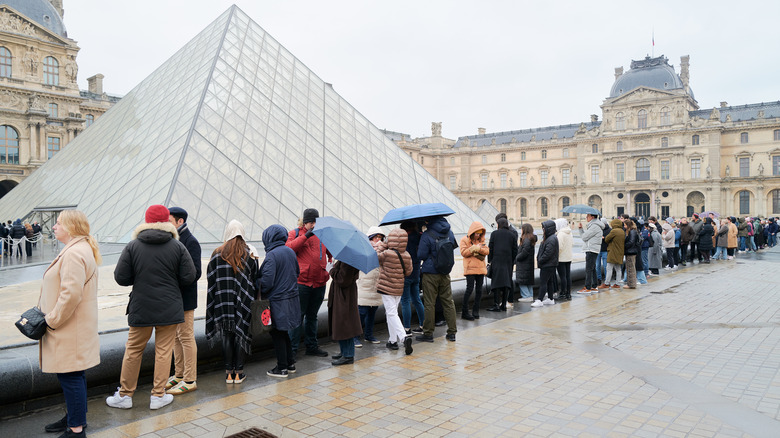Rick Steves' Advice For How Visitors Can Help Prevent Europe From Becoming 'Anti-Tourist'
We hear quite a bit about how we should avoid contributing to overtourism, especially as tourist numbers climb back to or even surpass pre-COVID levels. Social media is thought to be a contributor as the most picturesque and popular destinations frequent our news feeds. Not only do tourists in such large amounts harm the environment, but locals in places like Venice, Italy and Barcelona, Spain have gone so far as to limit tour group sizes or impose tourism taxes. Some locals have even begun to resent tourists altogether. So how do we assuage wanderlust without contributing to the problem?
European travel expert Rick Steves has made a career out of helping people travel to beautiful destinations. While he has tips for visiting popular places, like buying advance tickets to skip the line, he also emphasizes seeking out hidden gems — of which there are plenty across Europe. "Remember, ninety percent of Europe has no crowd problems," he states on his website. Regardless of where you go, Steves encourages travelers to be considerate too.
Help ease crowds by booking tickets for major attractions in advance
Places that require ticketed admission like museums or castles can often be purchased ahead of your trip. This not only means that you might be able to skip lines, but it also helps tourist attractions manage their numbers, especially if the attraction limits how many people can come in each day. Additionally, some places only offer admission in the form of guided tours. Knowing these details when building the perfect Europe travel itinerary will make your visit easier on local staff.
While bucket list destinations like the Colosseum or the Eiffel Tower are popular for a reason, Rick Steves wants travelers to seek under-the-radar experiences. This relates to his emphasis on going where locals go. "For every Anne Frank House, there's usually a Dutch Resistance Museum a few blocks away — less trendy, never crowded, and often actually offering a richer travel experience," he explains on his website. Finding places to visit or eating at restaurants off the beaten path can also mean supporting locals so that more can benefit from tourism money.
Learn some useful local phrases to help communicate
Rick Steves' next tip to keep Europe welcoming to tourists is to be considerate no matter where you go. Remember that you are a guest in their home. Maintaining a guest mindset means keeping cities and landscapes clean. Overtourism is not only an upsetting travel nuisance for locals, but also for the nature locals likely want to preserve. Steves sticks to the motto: "If you want to be warmly welcomed, be deserving of a warm welcome."
Another aspect of being considerate in a foreign country is knowing helpful words and phrases in the common languages spoken in your destination. This is not to say that you must become fluent before visiting, but knowing some basic things shows locals that you are not trying to make them adapt to your language or make your interaction cumbersome. "I get fine treatment everywhere in France just by using the simplest of French pleasantries," Steves explains. "If you begin every encounter with 'bonjour' or 's'il vous plaît,' and end it with 'merci' and au 'revoir,' you'll earn a smile."


